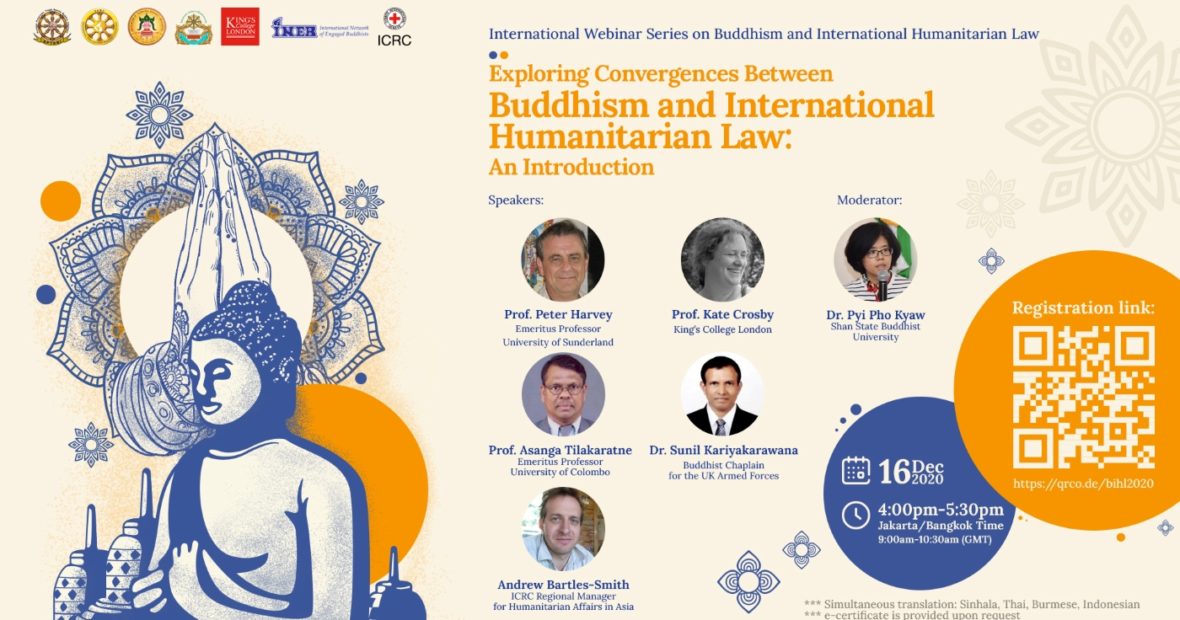On December 16 2020, the ICRC in collaboration with the International Association of Theravada Buddhist Universities (IATBU), the International Association of Buddhist Universities (IABU), Shan State Buddhist University, the Association of Buddhist Colleges of Indonesia (APTABI), the International Network of Engaged Buddhists and King’s College London hosted the first of its international webinar series on Buddhism and International Humanitarian Law (IHL), otherwise known as the “law of armed conflict”, Exploring Convergences Between Buddhism and IHL: An Introduction.
At Buddhism’s core is the recognition of suffering and the promotion of means to alleviate it, by challenging our understanding and making changes to our conduct. It has applied these means both to the quest for salvation and to the troubles that afflict society, and has grappled with the reality of war throughout its long history. This suggests a possible convergence of some of the aims of Buddhism and IHL. But what guidance does Buddhism provide to those caught up in the midst of hostilities, and how do Buddhism and IHL compare in this respect? It is timely and relevant to explore these two distinct bodies of ethics and legal traditions from inter-disciplinary perspectives.
This first webinar introduced the ICRC project on “Reducing Suffering During Conflict: The Interface Between Buddhism and IHL”, and featured some of the leading scholars involved, including Prof. Peter Harvey (University of Sunderland, Emeritus Professor), Prof. Asanga Tilakaratne (University of Colombo, Emeritus Professor), Prof. Kate Crosby (King’s College London), Dr. Sunil Kariyakarawana (Buddhist Chaplain to the UK Armed Forces) and Andrew Bartles-Smith (ICRC). Ven. Dr. Dhammasami (founder of Shan State Buddhist University, founder-executive of IATBU and IABU) generously opened the event. Dr. Pyi Kyaw (Dean, Shan State Buddhist University) moderated and after the presentations opened up the floor to questions from attendees.

